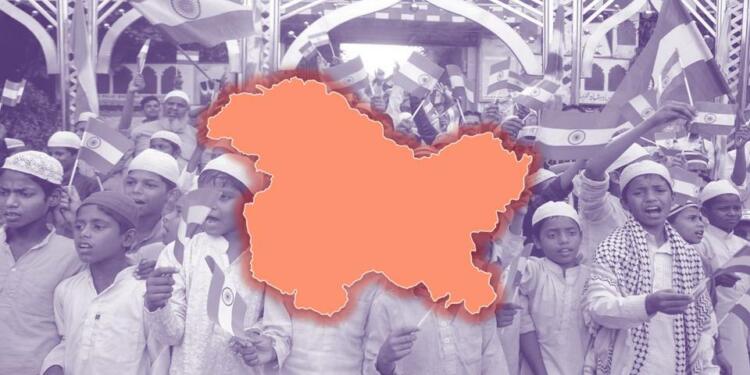The revocation of special status (Article 370) to Jammu and Kashmir has brought a new dawn in the development and prosperity of the state. Social, economic, security, and other associated conditions of the state are on the rise. The Union Territory is writing a new chapter of peace and stability. Now, the time has come to facilitate the democratic aspirations of the people.
Democracy at work in J&K
Hirdesh Kumar, Jammu and Kashmir Chief Electoral Officer (CEO) on August 17 announced that around 25 lakh new voters are expected to be enrolled in the Union Territory, with those ordinarily residing in J&K and having achieved the age of 18 or above as of October to be included.
In the press statement, the CEO said, “After the abrogation of Article 370, many people who weren’t voters in the Assembly can now be named on the voter list to cast their vote… and no person needs to be a permanent resident of the state/UT”.
After the abrogation of Article 370, many people who weren't voters in the Assembly can now be named on the voter list to cast their vote… and no person needs to be a permanent resident of the state/UT: Hirdesh Kumar, Chief Electoral Officer, J&K & Ladakh pic.twitter.com/QT9vzON5vK
— ANI (@ANI) August 17, 2022
Notifying the schedule of Special Summary Revision of Electoral Rolls with reference to 1st October 2022 as the qualifying date, Mr. Kumar said that all those who were ineligible to vote will be eligible after the abrogation of Article 370. The earlier barrier of a domicile certificate or a permanent resident certificate to get enlisted as a voter has been revoked. Now an employee, a student, a laborer, or anyone else ordinarily residing can easily avail voter id of the UT under the Representation of the People Act.
Further, speaking about Kashmiri migrants residing outside the Valley, the CEO said that camps are being held to register new voters among them according to the special provisions for such displaced people.
Also Read: Election is on the cards in the union territory of Jammu and Kashmir
Real Integration post Article 370
According to Article 370 of the Constitution and subsequent special status, no act of parliament was applicable in the UT. The Representation of the People Act, 1951, which governs the election procedure in India, was also not applicable there. The special status provided distinctive election laws to the state, where people residing there can never become the voter of the state.
In a deliberate attempt to provide exclusive rights to some people and manage the political monopoly, demographics were regulated. It was like some gulf Islamic nation, where people residing for decades can never become voters.
The rights of the common people like laborers, women, and other migrants were disarmed. Their right to recognition, political representation, and the election was violated for years. Whole Jammu, Kashmir, and Ladakh had become the prisoner of some self-serving politicians.
Also Read: G20 is ours, the venue is Kashmir, but it aches the bleeding hearts of China and Pakistan
Last month, the Delimitation Commission of Jammu and Kashmir reorganizing the assembly constituencies allotted six seats to Jammu and one to Kashmir. In the total 90 seats in the UT of Jammu and Kashmir, Jammu now has 43 from earlier 37 seats, and Kashmir has 47 from earlier 46 seats.
The recognition of the right to vote for the population of the Union Territory of Jammu and Kashmir will bring a new dawn in political democracy. It will help in obliterating years of discrimination against the people. The exclusive thinking developed due to the special status will decrease with time. Like other states or UTs, Jammu and Kashmir will also enter the era of development free from violence. A free and fair election for the assembly of UT of J&K will help in realizing the democratic aspirations of the people.
Support TFI:
Support us to strengthen the ‘Right’ ideology of cultural nationalism by purchasing the best quality garments from TFI-STORE.COM
























